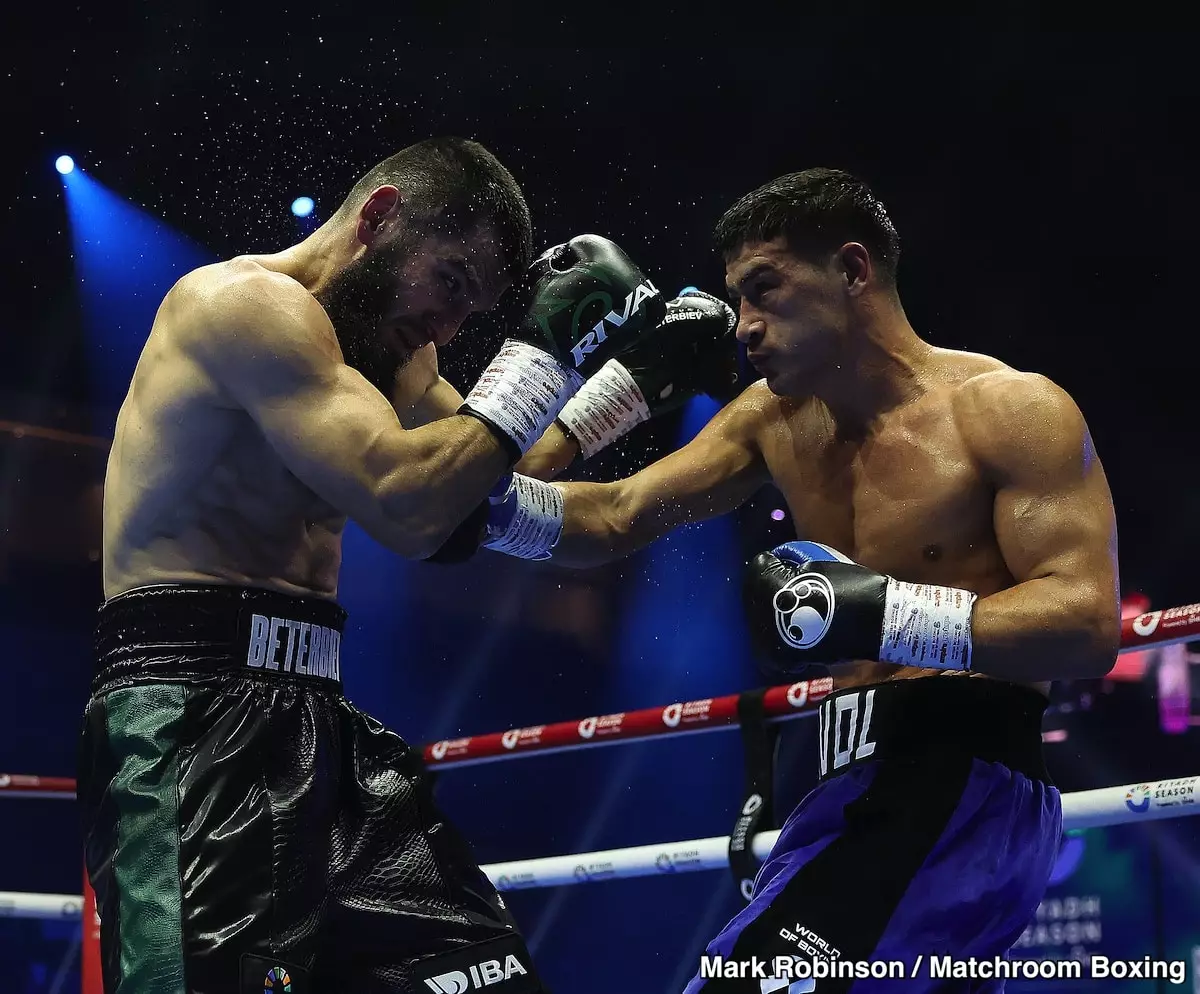In the world of boxing, where stakes are measured not just in belts but also in reputations, the recent bout between Dmitry Bivol and Artur Beterbiev has ignited discussions that transcend the ring. The narrow decision that favored Beterbiev not only highlighted the intense rivalry between these two light heavyweight titans but also raised questions about judging criteria and performance strategy. As trainer Robert Garcia weighed in on the fight, his comments reveal a broader context about what went right, what went wrong, and the potential for a rematch that could rewrite the narrative of this intriguing boxing saga.
Garcia’s analysis offers critical insights into Bivol’s performance, specifically regarding the tactical choices made during the championship rounds. Bivol, the former champion with a record of 23 wins and only one loss, seemed to lean heavily on his defensive skills as the match closed. While a solid defensive approach can be crucial in high-level boxing, Garcia’s critique posits that Bivol perhaps over-relied on this aspect, particularly in the last three rounds, which ultimately shifted the momentum towards Beterbiev. This raises the fundamental question: how can a fighter balance defense with offense to maintain control and influence judges’ scoring?
The unpredictability of judging in boxing can often lead to behaviors where fighters may second-guess their strategies based on the perceived scorecards. Garcia’s input suggests that Bivol may have thought he was ahead, an assumption that may have led to a decrease in offensive output when it was perhaps most critical to seal the deal. Many boxing analysts echoed Garcia’s sentiments, indicating that Bivol’s control over the latter stages of the fight could have shifted with a more aggressive approach.
One must also consider the environment in which these fights take place. The location of a rematch could significantly influence the outcome, especially if held in a city like Las Vegas, which has its own set of dynamics and expectations from the judges. Garcia’s belief that Bivol could earn close rounds in such a setting leans into the idea that perception—and indeed, the narrative that surrounds a fighter—plays a vital role in how decisions are rendered.
When contemplating the future match between Bivol and Beterbiev, the boxing world is left pondering whether this rematch is not just desirable but necessary. Bivol’s camp believes he deserves another chance to contest the title, and with Garcia advocating for this rematch, it seems there is momentum growing in that direction. However, complications may arise depending on managerial decisions and promotional interests that can easily complicate matters.
The prospects of this rematch could draw attention from diverse fight fans, not just those loyal to Bivol or Beterbiev. Following Garcia’s insights, there remains an undeniable tension built upon the understanding that Bivol, when aggressive, had glimpses of success against Beterbiev. This hint of competitive viability against such a powerful adversary beckons the question: are the characters of both fighters conducive to generating an exciting and high-stakes match?
Robert Garcia has provided a roadmap for Bivol regarding what adjustments might enhance his chances should they enter the ring again. Encouraging more offensive combinations while maintaining his defensive acumen could prove beneficial. However, boxing is an unpredictable sport, and the risk of being overly aggressive can lead to vulnerabilities—especially against a hard-hitting opponent like Beterbiev.
Bivol’s prior experiences, especially the painful lesson learned in the seventh round, could indicate a need for renewed risk assessment in fights. Undoubtedly, Garcia’s suggestions imply that Bivol has the technical capacity to find success, but the challenge remains whether he can mentally and physically embrace a dual role as both a defender and an aggressor.
Ultimately, whether a rematch materializes or not, the implications of this bout extend beyond either fighter’s immediate career paths. Both Bivol and Beterbiev have staked claims to their places among boxing’s elite, yet their legacy will hinge on how they handle situations like these moving forward. This match was not merely a contest of strength and skill; it was a display of tactical mastery and mental fortitude.
As fans eagerly await the potential for a rematch, the boxing community will be watching closely—not just for the results, but for the evolution and legacy of both fighters as they navigate the unpredictable waters of a sport that can change in the blink of an eye.


Leave a Reply